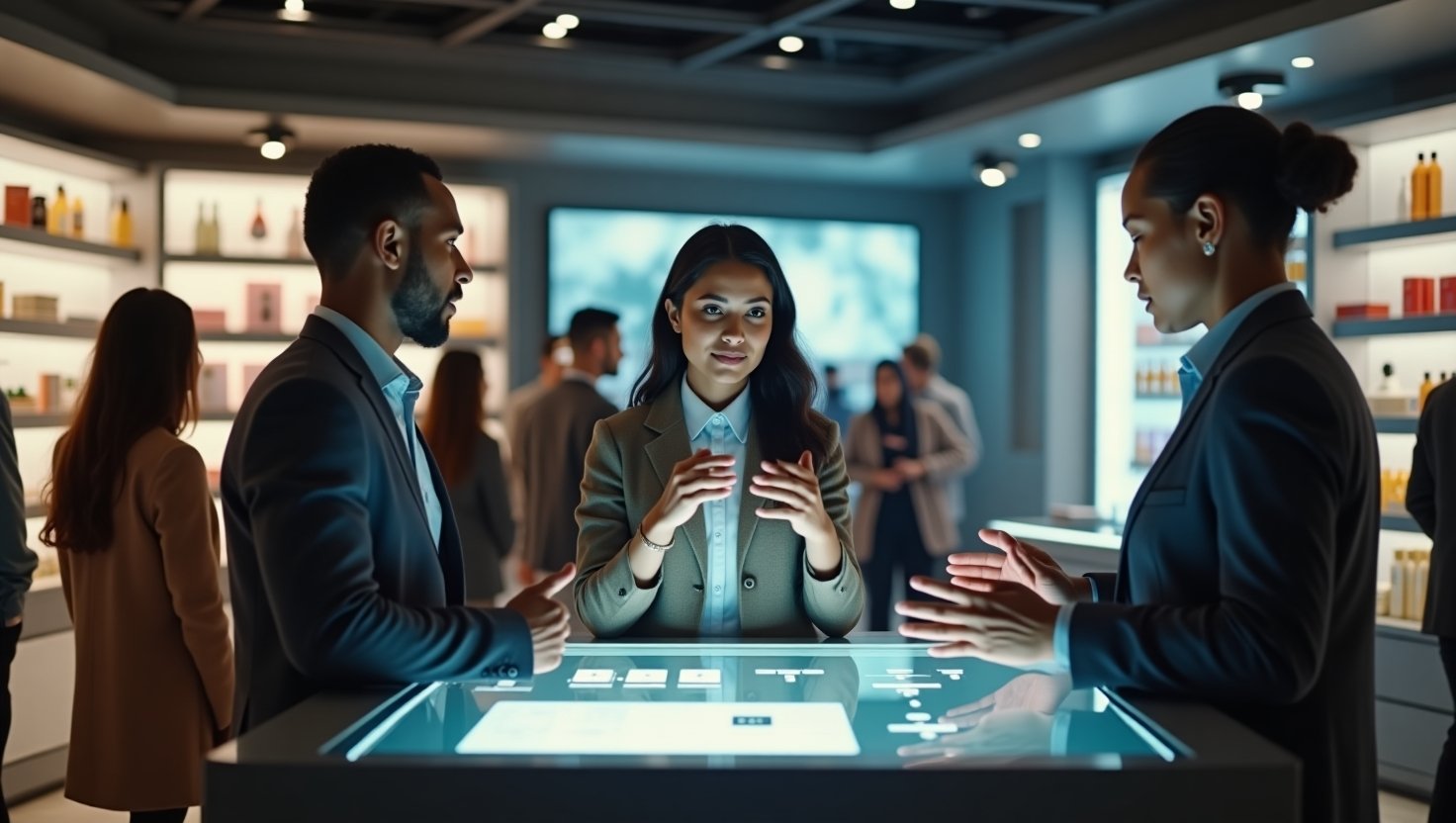AI Integration in Retail: Transforming the Shopping Experience
The retail industry is undergoing a significant transformation driven by artificial intelligence (AI). From optimizing supply chains to enhancing customer experiences, AI is becoming a cornerstone of retail innovation. This blog delves into the strategies, leadership, and innovations powering AI integration in retail, with a focus on notable examples like Walmart and Dollar General.
The Rise of AI in Retail
AI integration in retail is not just a trend; it represents a pivotal shift in how businesses operate. As retailers face increasing pressure to innovate and maintain competitiveness, artificial intelligence emerges as a critical tool for transformation. Companies like Dollar General are pioneering this shift by appointing leaders such as Travis Nixon to focus on AI optimization in their supply chain and store operations (source).
– AI Optimization in Retail: AI technologies, including machine learning and predictive analytics, are helping retailers streamline their operations. For example, AI can improve inventory management by predicting demand fluctuations, thereby reducing waste and saving costs.
– Retail Innovation through AI: Companies are exploring customer-centric innovations to improve shopping experiences. AI technologies such as chatbots and personalized shopping assistants facilitate seamless interactions and recommendations, making shopping both intuitive and efficient.
AI Leadership and Executive Strategies
Successful AI integration requires strategic direction from the top. Retail executives are crafting strategies that align AI initiatives with broader business goals.
– Importance of Executive Strategies: AI leadership is key to guiding organizations through the complexity of AI implementation. For instance, by creating executive roles focused on AI, retailers can ensure a dedicated focus on the integration process and its alignment with company objectives.
– Leadership in AI Implementation: As seen with Travis Nixon in Dollar General, leadership in AI is about steering retail innovation while navigating the challenges of digital transformation. Executives must balance technological possibilities with practical constraints and market demands.
Successful Examples of AI Integration
High-profile examples of AI integration highlight the potential of these technologies to revolutionize the retail sector.
– Walmart’s AI-Powered Tools: Walmart has introduced a suite of AI-powered shopping tools designed to enhance customer experiences both in-store and online. These tools include an AI-driven assistant named Sparky, which curates personalized shopping suggestions based on customer events, demonstrating the practical benefits of AI in retail (source).
– Analogy: Think of Walmart’s AI like a skilled personal shopper capable of navigating the store for you, suggesting products that align with your preferences and even forecasting trends you might be interested in.
– Impact on Consumer Behavior: Nearly two-thirds of consumers plan to use generative AI tools during their shopping journeys, showing the growing reliance on technology for better decision-making.
Future Implications and Forecasts
The future of AI in retail is bright, with numerous possibilities on the horizon:
– Expansion and Scalability: As AI technologies become more affordable and accessible, smaller retailers may adopt these tools to compete with larger chains, fostering a more competitive market.
– AI-Driven Sustainability: AI can play a crucial role in sustainability efforts by optimizing supply chains to reduce waste and carbon footprints.
– Forecast: By 2030, it is anticipated that AI will be integral to most retail operations, transforming traditional business models and setting new standards for efficiency and customer satisfaction.
In conclusion, AI integration in retail represents a transformative force that is redefining the industry landscape. With strategic leadership and innovative implementations, businesses can not only meet but exceed the expectations of the modern consumer, paving the way for a future where shopping is smarter, more personalized, and effortlessly efficient.










